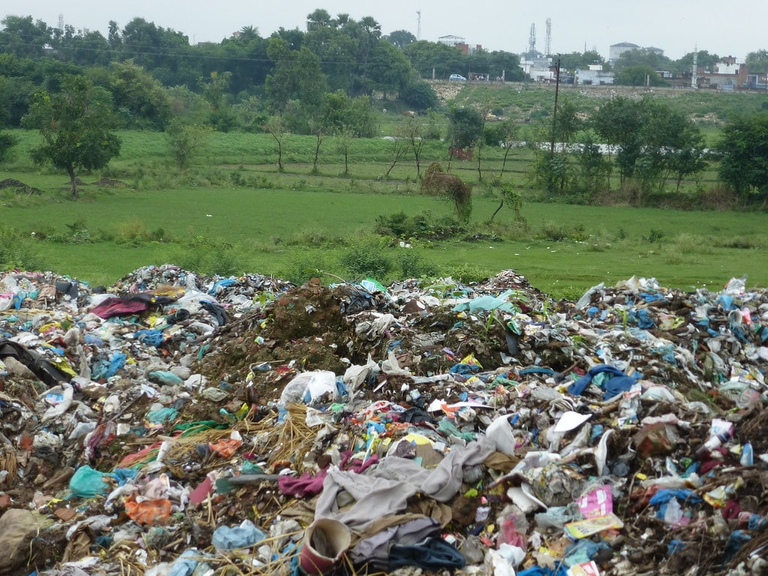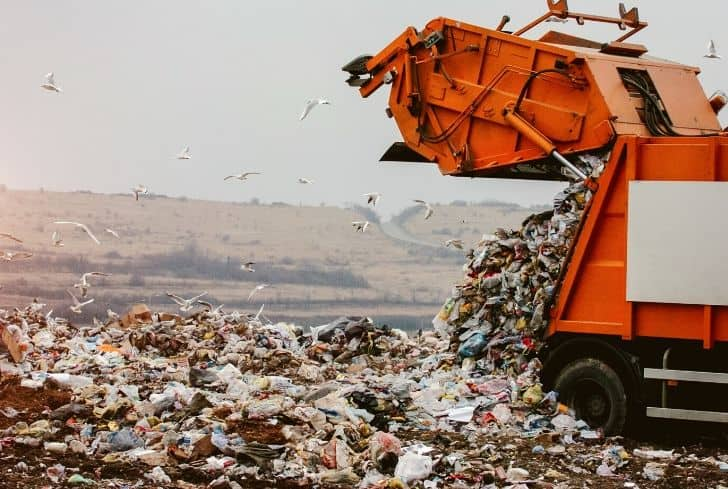Depending on the type of material or the regional terminologies, waste can be referred to as rubbish, trash, junk, or garbage. It can also be used to describe something that we use improperly or inefficiently. The existence of waste is a sign of excessive consumption and ineffective material utilization. This recklessly diminishes the Earth's ability to provide fresh raw resources in the future.

Any waste produced by regular human activity is considered solid waste. Solid waste can take the shape of garbage from the home, food scraps, and other waste materials like outdated household things like papers, plastic from broken cooking utensils, or any other objects used in daily life.
When early man started consuming animal products and producing garbage in the form of bones and other animal parts they used to butcher, solid waste may be traced back to the dawn of human civilization. With improvements in the human cycle of growth, an increasing number of products, including those made of wood, metal, and other materials came into being, and the trash produced took on a more complex nature.
However, because solid waste at the time was biodegradable and easily incorporated into the soil, it did not provide any significant health risks to the environment. The beginning of the 19th century saw the start of the industrial revolution, which resulted in a massive increase in the manufacturing of various items and the creation of non-biodegradable solid waste. Air and water pollution was a major result of this.
The influence solid waste can have on human health is probably the main reason why it must be managed carefully. More landfills and incinerators will only be developed if garbage is produced as much as possible without following waste prevention and minimization culture. If we don't act to stop and reduce waste at the source, potential health repercussions including cancer, birth defects, asthma, respiratory disease, and asthma are going to occur.
Hazardous household garbage includes some specific types. Hazardous wastes may be extremely poisonous to people, animals, and plants. They may also be explosive, highly flammable, or corrosive, and they may react with specific substances, such as gases.
From the perspective of public health, many commonly employed solid waste management techniques pose severe questions regarding their acceptability and safety. Such anxiety is caused by a combination of mistrust for the solid waste management policies and solutions put forth by all levels of government as well as an impression that many solid waste management facilities operate inefficiently.

Over the past 150 years, waste management practices have evolved to include disposal, treatment, reduction, recycling, segregation, and modification. Prior to that and in many more recent instances, all wastes were managed by their manufacturers utilizing straightforward disposal techniques, such as uncontrolled burning, dumping into fresh and salt waters, and land dumping.
One of the primary issues with modernization and advancement is the pollution it is inflicting to the earth, including the land, the air, and the water. There has been an increase in the amount of waste being produced everyday by each home as a result of the growing global population and the increased demand for food and other necessities. Finally, this material is dumped into municipal waste collection facilities, where it is picked up by the local municipalities and dumped into landfills and dumps.
The population in places without suitable waste disposal methods, particularly preschoolers, garbage workers, and employees in facilities manufacturing dangerous and infectious materials are among the groups at risk from the improper disposal of solid waste. Other high-risk populations include those who live close to dumps for waste and those whose water supplies have been tainted by leaks from landfills or waste dumping. The risk of infection and harm is also increased by uncollected solid trash.
The need for food and other necessities increased as a result of modernization, technological development, and a growth in world population. Each family is now producing more rubbish each day as a result of this. In the United States, more than 200 million tonnes of municipal solid garbage are produced annually.
In conclusion, effective solid waste management is a crucial aspect of environmental preservation that should be followed by both individuals and businesses around the world.
Hola @munawar1235
Me provoca cierta vergüenza ver tanta basura; es muy desagradable observar sítios como las orillas de las calles y avenidas de una ciudad con tantos desperdicios acumulados ahí. Toda municipalidad debería de tener un servicio eficiente para recojer la basura, el aseo urbano en muchos lugares del mundo es ineficiente o insuficiente para realizar dicho trabajo. La mayoría de las personas "conocen" la salubridad de la limpieza y que además, también pueden contribuir en el reciclaje de desechos sólidos. Aún existen residuos biodegradables que de cierta manera no son tan preocupantes para el daño del medio ambiente. Siempre hacen foros y programas (ONU) para evitar o reducir un poco los desechos tóxicos que si son de extrema preocupación, porque dañan la naturaleza y por enden al único hogar que tenemos habitando: nuestro planeta Tierra!
Hi @munawar1235
I am embarrassed to see so much garbage; it is very unpleasant to see places like the edges of the streets and avenues of a city with so much garbage accumulated there. Every municipality should have an efficient service to collect garbage, urban sanitation in many places in the world is inefficient or insufficient to perform such work. Most people "know" the healthiness of cleanliness and that they can also contribute to the recycling of solid waste. There are still biodegradable wastes that in some ways are not as much of a concern to the environment. There are always forums and programs (UN) to avoid or reduce a little toxic waste that are of extreme concern, because they damage nature and the only home we have living: our planet Earth!
Dear @munawar1235,
May I ask you to review and support the new proposal (https://peakd.com/me/proposals/240) so I can continue to improve and maintain this service?
You can support the new proposal (#240) on Peakd, Ecency,
Thank you!
Sure done. I know you are supporting this community for a long time.
Thank you for your support @munawar1235, really appreciate it! 👍